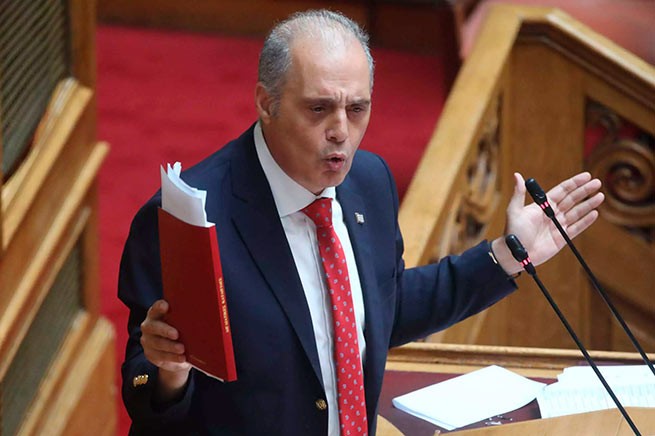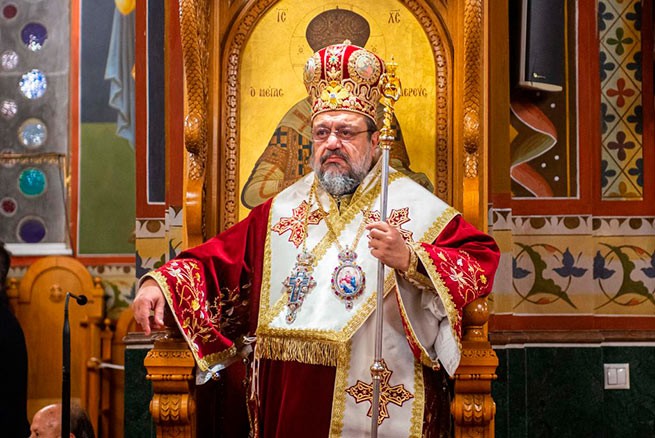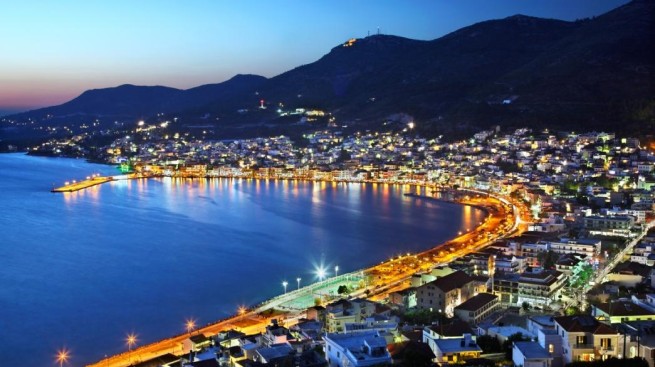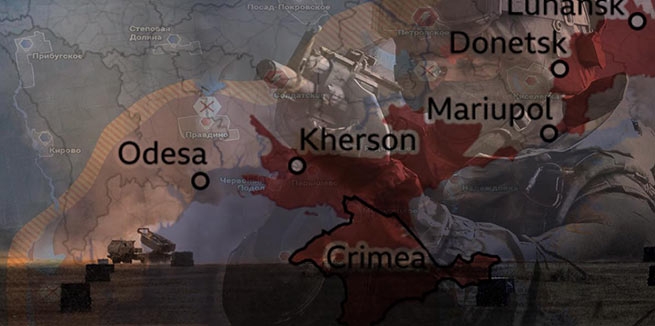Greek edition ProNews remindedthat the attack of the Armed Forces of Ukraine on Kherson, which led to heavy losses on both sides, took place in the same places where the Greek Expeditionary Force in 1919 took an unsuccessful battle with the Red Army.
The Ukrainian counter-offensive in Kherson ended in a crushing failure, leaving behind at least 1200 Ukrainian soldiers killed, as a result of which Kyiv was forced to transfer reserves from the Odessa garrison to Nikolaev to make up for losses. At the same time, the losses on the part of the Russian Federation total about 250 people.
This is exactly the place where Greek soldiers in 1919 drenched the land of the Kherson region with their blood during an unsuccessful campaign against the Bolsheviks, inspired by Greek Prime Minister Eleutherios Venizelos.
Greek losses during this battle amounted to 12 officers and 245 privates.
103 years ago, a Greek infantry battalion (from the 34th regiment), which took part in the so-called Crimean campaign to suppress the Bolshevik revolution and consisted of 23 officers and 853 privates, set out on a campaign against the “Reds”.
Bolsheviks advanced to the region three armies with a total number of 217,000 people, which, after the defeat of the separatist Ukrainian movement in early January 1919, were advanced against the occupation (expeditionary) corps of the Entente on three fronts: the Kherson Front, the Nikolaev Front and the Berezovsky Front.
On March 1, the Greek forward company received an ultimatum from Ataman Grigoriev, commander of the Bolshevik division in Nikolaev, to lay down their arms and leave the area by 17:00 the next day, who stated that he “does not know any difference between Greece and Russia.”
The answer was given immediately: “It is unworthy of the descendants of Leonidas to leave their positions.”
The overwhelming superiority of the Bolshevik forces forced the allied forces to conduct rearguard battles, despite the fact that, according to Greek historians, “the Greek troops were distinguished by discipline and selflessness.”
The continuation is well known, and the Greek soldiers again fulfilled their duty as the descendants of Leonidas*.
To hide yesterday’s fiasco, O. Arestovich, adviser to the President of Ukraine Zelensky, said that “we are planning a slow counteroffensive, and not a blitzkrieg to take the Kherson region, with a gradual weakening of the Russian army until Ukraine regains its territory.”
An unprecedented “slow counterattack” strategy, especially as Ukrainian forces’ reserves are dangerously depleted…
It is reported that the hospitals of Nikolaev are overcrowded with the wounded, some of them have been transferred to Odessa.
The Ukrainian counter-offensive, according to early estimates, is defined as a major defeat that could cost the loss of Nikolaev himself in the coming days due to the lack of sufficient forces to defend him.
Much will depend on the Russians themselves, whether they will take advantage of the situation to immediately advance on Nikolayev, and not delay, as was the case with Severodonetsk and Lisichansk, giving the Armed Forces time to reorganize on the line between Seversk and Bakhmut.
However, many analysts are wondering how V. Zelensky could order such a suicidal operation, without Ukraine having air cover and the necessary forces to attack the Russian army.
Obviously, Kyiv is under pressure from the West to achieve “big goals” now because they have realized that a war of attrition is in the interests of the Russians, because the longer it goes on, the more it destroys Western economies.
Il consigliere di #ZelenskyO.Arestovych, ha detto che l’#Ukraine sta pianificando una lenta controffensiva.
Non un blitz per prendere #Khersonma l’indebolimento delle forze #Russian in modo graduale e logorante, affinché l’#Ukraine possa riconquistare tutto il suo territorio— Donatella Bartolini (@Bart_Press) August 30, 2022
🇺🇦🇷🇺赫爾松 #戰況
當地 居民 稱 , 上午 6:30 左右 一 個 烏克蘭 偵察 破壞 組織 試圖 透過 尼古拉耶夫 公路 進入 該 市 在 傳染病 醫院 一帶 發生 交火 後 消滅 消滅 → 中 有 陣陣 💥 💥 💥 槍聲 槍聲 槍聲 槍聲 槍聲 槍聲 槍聲 槍聲 槍聲 槍聲 槍聲 槍聲 槍聲
這一帶已被關閉, 檢查正在進行.烏軍主要目標是在當地居民中製造恐慌,並在“反攻”效果極微的狀況下,實現媒體效應#Nikolaev #Kherson pic.twitter.com/dgKWWcRiqm
— 望山月 (@wangxiang2021) August 30, 2022
🇺🇦🇬🇺A seguito della sconfitta dell’offensiva di #Zelensky delle truppe🇺🇦 nel #Nikolaev–#Krivoy Rog e in altre direzioni, eseguite per ordine personale del nemico,🇺🇦 hanno subito delle perdite:più di 1.200 militari🇺🇦,48 CA,46 #VCF37 altri veicoli, 8 camioncini, 2 #su25#ukraina pic.twitter.com/Xp0sRXrD5G
— Orsettablue (@orsettiblue) August 30, 2022
#KhersonOffensive
Ukrainian Armed Forces are transferring reserve units from #Odessa area to #Mykolaiv to make up for losses from yesterday’s fighting. Casualty figures could be over 1000 dead
Hospitals in #Nikolaev #KryvyiRih are overflowing and wounded are being sent to Odessa— UkraineNews (@Ukraine66251776) August 30, 2022
UA trying to do something or Mykolaiv will fall no other options . What UA need is new army , new command , new strategy opposite of NATO strategy . Terrain is nightmare and without air support its suicide operation also do not forget RU army is not in stone age. pic.twitter.com/QYVsUSIEzG
— The Borg Cube-Tatanka (@CByder) August 30, 2022
Maybe im too old for this, some call this UA counteroffensive i call it UA brainless command, brainless tactic are they really think war is pc game and RU have just one catapult. game over. pic.twitter.com/DBRd4SCBUq
— The Borg Cube-Tatanka (@CByder) August 30, 2022
🇬🇧Η επίθεση στο χωριό #Blagodatnoye (περιοχή #Νικολάεφ) από μονάδες #Ρώσων αλεξιπτωτιστών. #Ρωσία #Ουκρανία #Ντονμπάς #UkraineRussiaWar #CBO #we don’t throw our own pic.twitter.com/0ZPT8jJCIX
— laralara 🇷🇺🇬🇷Z (@leblorik) August 30, 2022
After crushing the 5th 🇺🇦 #Kherson counteroffensive I hope the 🇷🇺 will not make the same mistake they did after #lysychansk / #Severodonetsk : taking a holiday ( for God Sake!) and let the Ukies regroup to fight another day. They have to hunt them down ➡️ center of #Nikolaev
— AlexanderIV (@AlexanderIV17) August 30, 2022
update part 1 #Kherso counter offensive #Posad–#Pokrovsky #Aleksandrovsky sections as of 11:00 30 August 2022
at night, #Ruaf pushed #uaf back to #Blagodatnoye (#Petrovskoe)- #Pravdino line, just 4 km from Posad-Pokrovsky.#Nikolaev #Russia #Ukraine #Kherson— GungHo2 (@GungHo2) August 30, 2022
Take putistan orcs!
— Jukka Heinänen (@Jussi62Jukka) August 30, 2022
Ukrainian troops attempted an offensive in the Nikolaev and Kherson regions, with heavy losses: 560 personnel, 26 tanks, 23 infantry fighting vehicles and two Su-25 aircraft.. pic.twitter.com/DXFgyl3cYk
— Geo_monitor (@colonelhomsi) August 29, 2022
Τα πρώτα ενδιάμεσα αποτελέσματα των μαχών στην περιοχή #Χερσώνα
Στα #ΜΜΕΞΕΦΤΙΛΕΣ πιστά στο καθεστώς του #Κιέβου. #Χερσώνα.1/3 pic.twitter.com/0QbKsEFriR
— laralara 🇷🇺🇬🇷Z (@leblorik) August 29, 2022
Greece’s participation in this war backfired later on with the help of Ataturk from Soviet Russia in 1921-22, which led to the defeat of the Greek army during the 4th Balkan War and to Asia Minor catastrophe.
One of the reasons that French sailors did not take on board the Grecoin, during the fire in Smyrna, there was a story involving the Greek military, who took part in the suppression French uprisings in Sevastopol in 1920. Read more about this in the postCrimean campaign and participation of the Greek army“.







More Stories
The Senate voted to allocate funding to Ukraine
ISW: Russia tightens pressure on Kharkov, prompting population to flee
From April 23, the Ministry of Foreign Affairs of Ukraine restricts access to consular services for men abroad